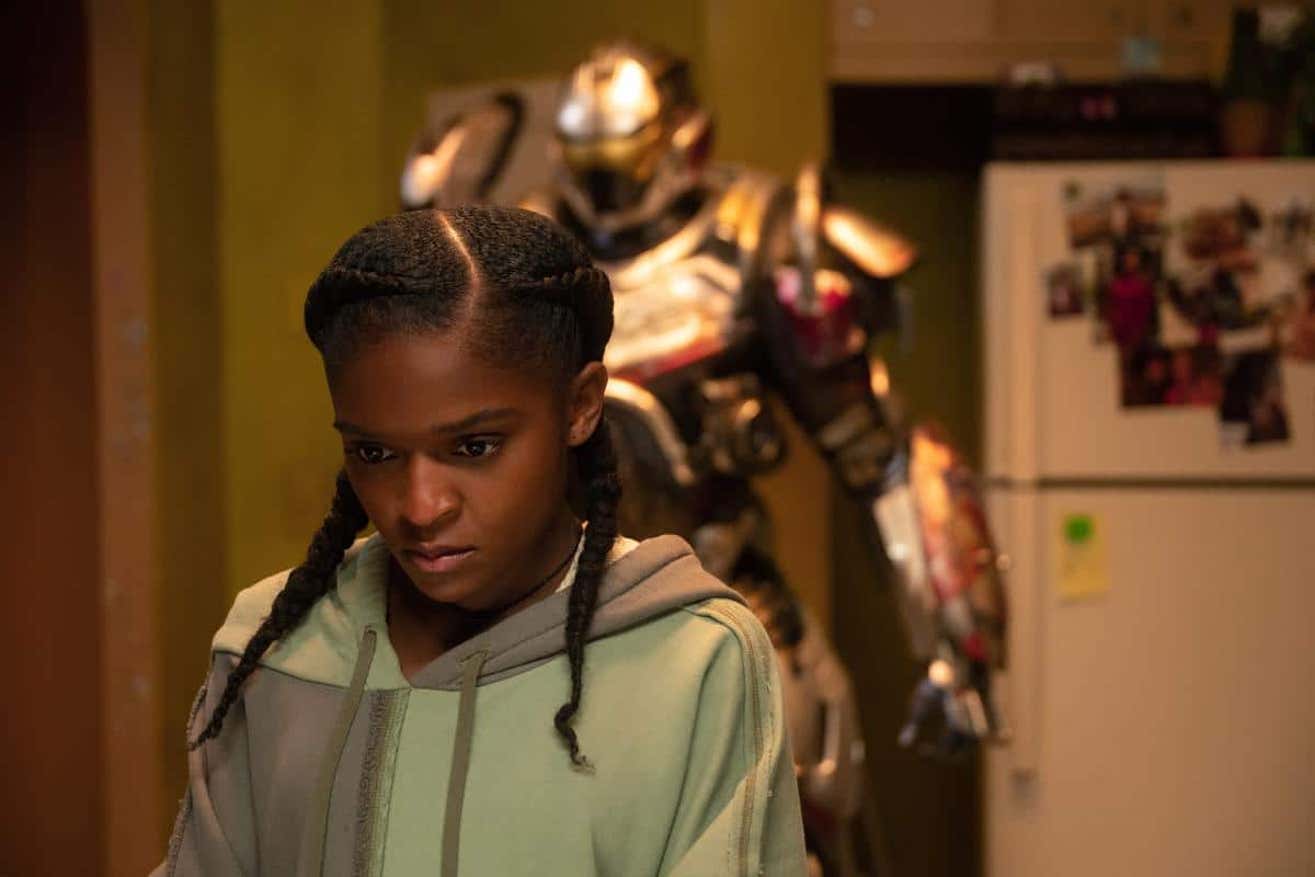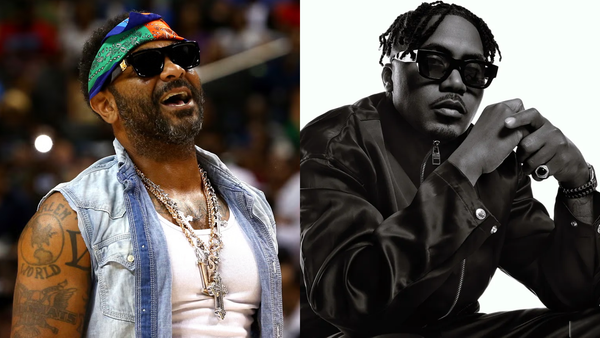The Playbook is Tired: Ironheart and the Hypocrisy of "Unlikable" Heroes
by SPJ

Let's be real for a second. Y'all already know the drill. A new Marvel project drops, this one starring a woman or a person of color, and the internet immediately loses its collective mind. It's the same tired playbook, and frankly, I'm exhausted. Disney+'s Ironheart was just the latest to get fed into the woodchipper.
Hours before anyone could have possibly seen it, the show was review-bombed into oblivion. It's a coordinated attack, the calling card of the "M-SHE-U" crowd that sees a female hero as a personal insult. When actual critics dropped positive reviews, the outrage only got louder, flooded with buzzwords like "preachy" or "pandering" to mask the same old racism and sexism.
But the argument I really want to talk about is the one dressed up as a good-faith critique: the idea that the hero, Riri Williams, is just plain unlikable. She's arrogant, they say. She's a criminal.
The problem? These are the exact same traits we not only forgive but actively celebrate in our favorite white male heroes. It's not a critique; it's a double standard so staggering you could land a Helicarrier on it.
So, let's look at the receipts.
The Indictment: What Are We Charging Riri With?
First, let's get into the official charges the internet has cooked up for Riri Williams.
- Count 1: Unbearable Arrogance. Critics have branded Riri a "narcissistic" and "aggressively unheroic" protagonist. Her expulsion from MIT for selling assignments and her speech about refusing to "be small" are often cited as evidence of her insufferable ego. The narrative is that she's disrespecting Tony Stark's legacy by daring to build her own suits.
- Count 2: A Criminal Record. The second charge is that Riri's "default solution to everything is 'go do a crime'." To get her suit built, she joins a criminal gang, participates in corporate heists, and blackmails an arms dealer. The final nail in her heroic coffin, according to critics, is when she commits manslaughter by negligence, allowing a fellow gang member to suffocate to cover her tracks.
It doesn't sound good on paper. But when you hold this up against the rest of the MCU, the argument doesn't just fall apart; it becomes a joke.
The Privilege of Pride: When Arrogance Is "Charisma"
This is where the hypocrisy gets loud. Riri's "arrogance" is a dealbreaker, but for the MCU's golden boys, it's a core personality trait.
- Tony Stark: Don't play dumb. The man's whole personality was Grade-A, uncut arrogance. He proudly called himself the "Merchant of Death" and smugly told Congress he had "successfully privatized world peace". His hubris directly led to the creation of Ultron, a genocidal AI that leveled a country. Yet, we're told this is just his irresistible "charisma" and compelling "character depth".
- Doctor Strange: His journey starts with an ego so massive it's practically a superpower. Even after becoming Sorcerer Supreme-adjacent, his belief that he knows best leads him to tear a hole in the multiverse in No Way Home, directly against Wong's advice. His arrogance isn't a flaw; it's framed as a grand, intellectual tragedy.
- Thor: The entire plot of his first movie is about what an arrogant jerk he is. He's a "selfish, reckless warrior" whose ego gets him banished. For a considerable chunk of his arc, he's a boastful "frat bro" who thinks with his hammer. But because he's royalty, his pride is a mythic flaw, the start of a classic redemption story.
For them, arrogance is the necessary prelude to greatness. For a young Black woman like Riri Williams, it's a character-defining sin.
Good Guys Gone Bad: The Criminals We Root For
The idea that Riri is an irredeemable criminal is even more laughable when you look at the rap sheets of the MCU's fan-favorites.
- The Lovable Lawbreakers: Scott Lang (Ant-Man) is a convicted burglar whose criminal past is played for laughs. The Guardians of the Galaxy are a whole crew of wanted criminals—thieves, mercenaries, murderers—and their lawbreaking is the very foundation of their "found family" charm. They are beloved rogues.
- The Killers We Forgive: Clint Barton (Hawkeye) goes on a global killing spree as Ronin, racking up a body count that would make the Punisher blush, and it's all framed as a tragic result of his grief. Captain America, the supposed moral compass, becomes an international fugitive, and we're told it's the peak of heroism. Bucky and Natasha have staggering body counts. All are given redemption arcs. That forgiveness is a narrative privilege, one that critics seem unwilling to extend to Riri for her comparatively minor transgressions.
Let's See the Receipts
Look, if you're still not convinced, let's just put it in a bullet list. Sometimes you just gotta see the receipts laid out plain and simple.
Riri Williams (Ironheart)
- Transgressions: Sells plagiarized assignments, blackmails a dealer, joins a criminal gang, participates in heists, and commits manslaughter by negligence.
- Narrative & Fan Framing: Condemned as a "narcissist" and "unheroic criminal." Flaws are presented as permanent character defects, not the start of an arc.
Tony Stark (Iron Man)
- Transgressions: War profiteering, creates the genocidal AI Ultron, and illegally detains a minor (Spider-Man) to fight his battles.
- Narrative & Fan Framing: Celebrated as a "charismatic" and "iconic" hero. His arrogance is framed as a compelling, tragic flaw that makes his redemption powerful.
Scott Lang (Ant-Man)
- Transgressions: Is a convicted felon for burglary, violates his parole, and engages in further theft as a vigilante.
- Narrative & Fan Framing: Portrayed as a lovable, "scrappy underdog" and a sympathetic Robin Hood figure. His criminal past is a source of charm.
Peter Quill (Star-Lord)
- Transgressions: Is a "legendary outlaw" with convictions for theft and conspiracy who was a member of a space pirate gang (The Ravagers).
- Narrative & Fan Framing: A charming, lovable rogue. His criminal lifestyle is the backdrop for a "found family" story and is never treated as a serious moral failing.
Steve Rogers (Captain America)
- Transgressions: Repeatedly disobeys direct orders, becomes an international fugitive by violating the Sokovia Accords, and harbors a wanted fugitive (Bucky).
- Narrative & Fan Framing: The ultimate man of principle. His lawbreaking is framed as the highest form of morality, choosing conscience over unjust laws.
Clint Barton (Hawkeye)
- Transgressions: Becomes Ronin and engages in a global killing spree, murdering dozens of criminals.
- Narrative & Fan Framing: His actions are framed as a tragic result of his grief. He is granted a full redemption arc and remains a beloved, core Avenger.
Moving the Goalposts is the Whole Point
When you look at the evidence, the conclusion is unavoidable. The outrage isn't about a consistent standard of heroism. It's about moving the goalposts to exclude a character who doesn't fit a certain mold.
If a female character is competent, she’s often perceived as a "Mary Sue." If she's flawed, she's "unlikable". Arrogance in a man is "charisma"; in a young Black woman, it's "narcissism." A criminal past is a "redemption arc" for a man, but a permanent stain for Riri.
This isn't about quality. It's about cultural gatekeeping, using character critique as a weapon to police who gets to be a hero.
The problem isn't Riri Williams. The problem is a segment of the audience that refuses to grant a young, brilliant, Black woman the same moral complexity, narrative grace, and potential for growth that they so readily give to the white male heroes who came before her.
What's Your Take?
This is the kind of breakdown we do every week at the Black Culture Geekz Substack. We don't just react; we analyze the patterns and call out the hypocrisy.
- Have you noticed this double standard in the MCU or other fandoms? Where else have you seen it?
- Is it even possible for a character like Ironheart to get a fair shake in the current fan climate?
Drop your unfiltered thoughts in the comments. We read everything.
If you appreciate analysis that gets to the root of the issue, subscribe to the Black Culture Geekz Substack. You'll receive our weekly deep dives and gain access to a community that loves to debate culture on a higher level.
